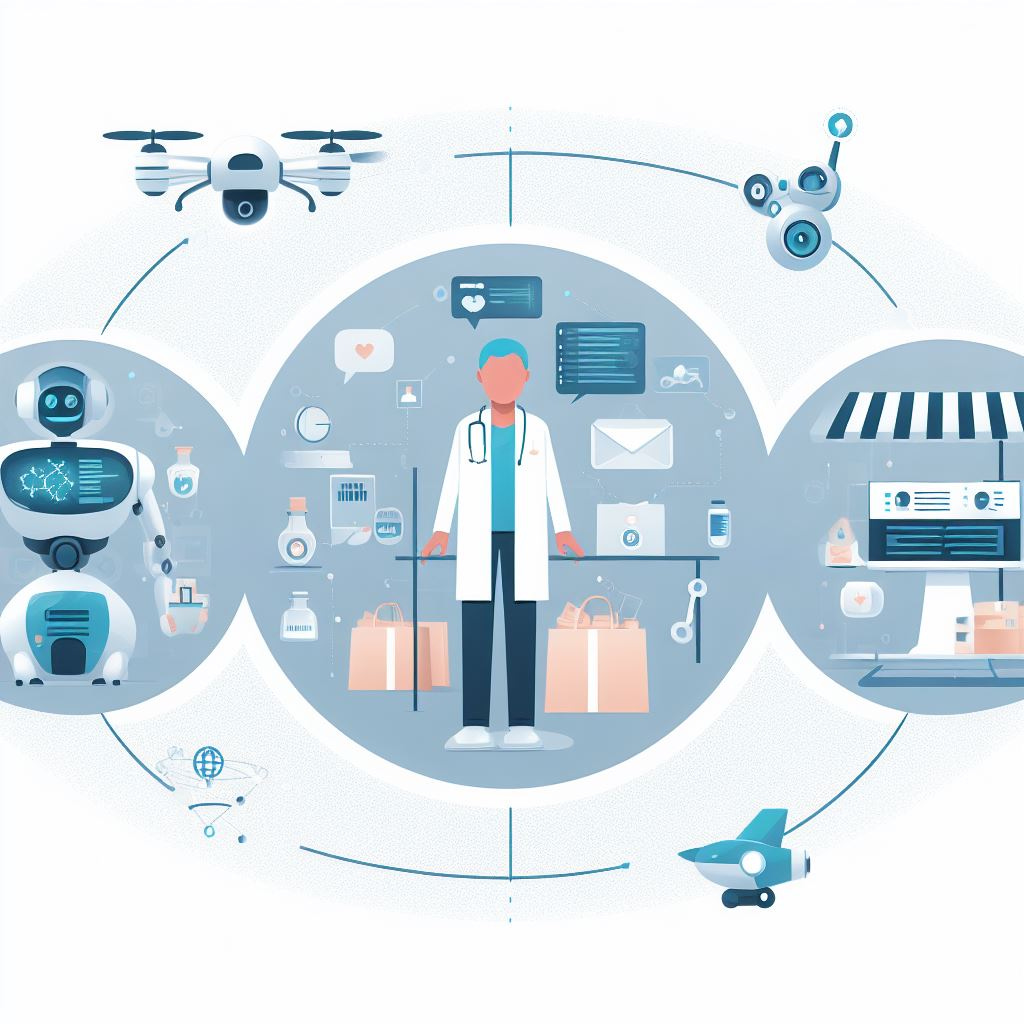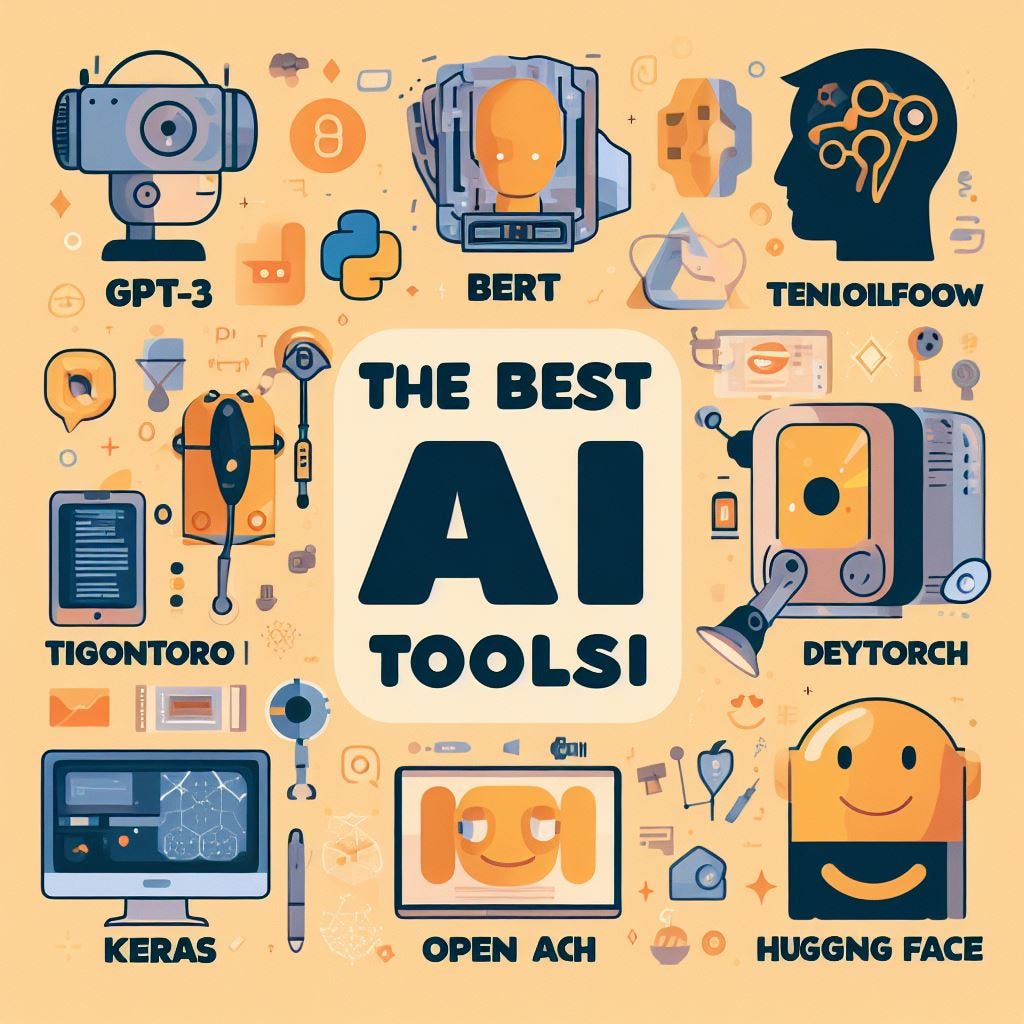Driving Innovation and Efficiency: AI Advances in Healthcare Logistics and E-Commerce
Leveraging Data and Automation to Enhance the Customer Experience
MCRA Launches Integrated AI and Imaging Center to Advance Innovation
- MCRA launched AI & Imaging Center to meet emerging imaging & AI technology needs
- First integrated solution led by former FDA experts covering medical device product lifecycle
- Headed by ex-FDA authorities; works with radiologists & specialists network
- Focuses entire study timeline: regulatory to data to testing & management
- Aided over 50 clients from protocol creation through regulatory submissions
- Fully integrated solution with state-of-art software & 24/7 assistance
- Value is expertise to ensure FDA-aligned studies & accelerated market entry
- Aims to advance imaging & digital health innovation through regulatory guidance
How Amazon Uses AI to Streamline Delivery for Cyber Monday ‘Super Bowl’
- Amazon VP calls Cyber Monday e-commerce "Super Bowl," uses AI for smooth shopping
- SCOT system forecasts 400M+ item demand via deep learning to optimize stocking
- 750K robots in warehouses fetch purchased items identified by software
- Robotic arms like "Robin" leverage AI vision to efficiently sort packages
- Generative models simplify driver decisions for route optimization
- 20+ ML models power logistics from recommendations to last-mile delivery
- AI spans customer journey for seamless convenience on biggest shopping days
- New innovations like Titan robot & Cardinal arm aim to keep raising delivery bar
How Amazon Uses AI to Streamline Delivery for Cyber Monday ‘Super Bowl’
Behind the Scenes: How Amazon Leverages AI for Smoother Cyber Monday Shopping
With Cyber Monday rivaling peak events like Black Friday and Prime Day, Amazon VP Scot Hamilton calls it the “Super Bowl” for his logistics planning team. He says artificial intelligence enables the e-commerce giant to handle extreme spikes in order volume, making the busiest online shopping day seamless for customers.
AI optimization happens long before shoppers click “Buy.” Amazon’s SCOT system forecasts demand for 400 million-plus items daily, leveraging deep learning on massive data to stock the right products in the right facilities. Enhanced by natural language processing in 2020, SCOT grew 15x more accurate over a decade to enable bigger selection and faster fulfillment.
Once purchased, AI orchestrates smooth order journeys. Amazon’s 750,000 warehouse robots fetch items identified by central planning software. Shared machine learning helps the fleet navigate more efficiently. Employees then prepare goods for shipping as intelligent robotic arms like “Robin” sort packages by size and shape.
AI also readies for the unexpected, like early truck arrivals or hazardous road conditions. Generative models simplify driver decisions via clearer customer notes and better address matching. Route optimization occurring up to delivery is exponentially complex, with “too many decisions for manual input,” says Hamilton. Machine learning efficiently evaluates options for the best path.
In total, over 20 ML models power Amazon’s logistics. Last-mile teams now explore large language models to further improve planning and cut risks through enhanced understanding.
The scope of AI spans the customer journey: from personalized recommendations on a shopper’s homepage to robots packing orders to drivers dropping off packages. This behind-the-scenes technology works round-the-clock so consumers feel nothing but convenience. In Hamilton’s words, “When you don’t realize it’s there, that means it’s working perfectly.”
While celebrating AI’s progress, Amazon continues raising the bar to take delivery to the “next level.” The latest innovations—like the Titan mobile robot for heavy lifting and the robotic arm Cardinal for streamlined sorting—aim to make operations even faster, safer and more reliable into the future.
MCRA Launches Integrated AI and Imaging Center to Advance Innovation
MCRA, a leading medical device and biologics clinical research organization, has launched an AI & Imaging Center to meet emerging needs as imaging technologies and AI/ML advance. The first integrated solution led by former FDA experts, it covers the entire medical device product lifecycle with round-the-clock client support.
Headed by ex-FDA regulatory and operations authorities, the Center provides services to clients developing AI-enabled devices and novel imaging tech. It works with a large network of radiologists and specialists, offering diagnostic and therapeutic imaging lab services.
The Center focuses on the whole study timeline—from regulatory input, design and setup to data gathering, analysis, performance testing and project management. Having already aided over 50 clients, services span from protocol creation through regulatory submissions.
As a fully integrated solution, the Center utilizes state-of-the-art zero print, imaging analysis and data software with 24/7 assistance. Senior Director Dr. Alex Cadotte says their value is the expertise to ensure studies meet FDA expectations, reducing time-to-market.
Richie Christian of client Formus Labs notes how the Center imparted key FDA insights around AI best practices, enabling cutting-edge, approvable products.
MCRA is eager to further advance imaging and digital health innovation by guiding clients through the evolving landscape. CEO Anthony Viscogliosi states the Center truly merges regulatory knowledge with study execution, tech and testing for maximum client success and efficient FDA approval.
In an era of immense potential paired with complexity, MCRA's integrated prototyping, performance evaluation and regulatory comprehension aims to accelerate development of safe and effective AI imaging tools. The FDA veteran-staffed Center seeks to become an indispensable partner for responsible AI integration in healthcare.
6 OF THE BEST AI TOOLS
HEADLIME IS THE GO-TO GPT-3 TOOL FOR MARKETERS.
WRITESONIC IS ONE OF THE BEST ARTIFICIAL INTELLIGENCE-POWERED COPYWRITING GPT-3 TOOLS.
Unleash Your Creativity with These 10+ Amazing Free AI Art, Music, and Video Tools
Transform Photos and Videos into 3D Scenes, Generate Original Music, and More with Cutting-Edge AI
Major Countries Unveil Landmark AI Safety Agreement
Eighteen countries including the United States, Britain, Germany, and Australia have unveiled the first detailed international agreement on keeping artificial intelligence safe from misuse. The countries agreed that companies designing and deploying AI systems need to do so in a way that protects customers and society.
The 20-page non-binding agreement lays out general recommendations for monitoring AI for abuse, securing data from tampering, and vetting software suppliers. US Cybersecurity Director Jen Easterly said it's significant that so many countries agree AI systems must prioritize safety over features and speed to market. She called it an affirmation these systems should be "secure by design."
The agreement represents the latest government effort to shape AI development for societal good. While it lacks enforcement power, supporters say it's an important first step toward responsible AI deployment. Guidelines cover assessing AI model risk, enabling external review of systems, and implementing cybersecurity best practices.
Europe has taken a lead on AI regulations, with rules in the works. France, Germany and Italy recently agreed on promoting self-regulation and codes of conduct for foundational AI models. The US has struggled to pass AI laws given political divides. President Biden did issue an executive order in October seeking to reduce AI risks while supporting innovation.
The rise of AI has raised concerns about disruption to jobs and democracy, supercharging fraud and hacking, and other harms. While this new agreement doesn't address appropriate AI uses or data gathering, signatories hope it spurs meaningful progress on pressing questions around emerging technology and ethics.
Music Fans Demand AI Transparency and Artist Consent
A new report from the International Federation of the Phonographic Industry (IFPI) indicates strong music fan support for transparency and consent standards around AI-generated music. For the first time, IFPI's annual Engaging with Music survey included questions about artificial intelligence as advanced systems continue influencing the industry.
Results show fans deeply value human creativity in music, with 79% saying it remains essential. Given AI's ability to copy existing works, 76% believe an artist's music/vocals should not be used without permission. Another 74% agree AI should not clone or impersonate artists without authorization.
Additionally, 73% support the need for transparency, agreeing AI systems should clearly list any music used for training. IFPI Chief Executive Frances Moore said the findings send a clear message that authenticity matters and AI should only utilize pre-approved music.
The report also found high AI awareness among fans, with 89% aware and many actively using applications. However, they recognize guardrails are needed around acceptable practices. 70% agree there should be limits on AI capabilities, while 64% want governments setting restrictions.
As policymakers consider AI regulations, music fan perspectives provide important guidance. Support for consent, transparency, and restricting imitation indicates expectations for ethical standards. With human creativity still hugely valued but AI advancing quickly, striking the right balance will be critical.
Overall the IFPI report highlights interesting tensions. Music fans are intrigued by AI applications, yet firmly believe protections for artists must come first. Those developing AI now have actionable insights into user attitudes and priorities as the technology evolves. Respecting key principles like consent and clarity will be essential for both responsible innovation and public trust.









